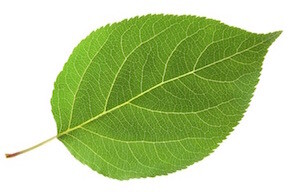
Ashitaba is an adaptogen — an herb or substance that assists the body in easing stress, normalizing function and, thus, helping to relieve a wide range of health issues. Adaptogens automatically go to where they’re needed most. They know what to do.
Ashitba is a superstar adaptogen, considered among the elite 1% of all medicinal plants. Though just becoming known now in the western world, the herb is believed to have originated over 2000 years ago in the Japanese Hachijo Island where rich volcanic soil and Kuroshio ‘black tide’ enhances plant growth. Ashitaba means “Tomorrow’s Leaf” because of its ability to grow very fast, such that,when harvested, all its leaves grow back within 24 hours — indicative of a strong energetic life force or chi. With such regenerative powers, it’s not surprising that ashitaba is increasingly in demand as a general health promotor, an anti-aging wonder and much more…..
Nutrient Density
Ashitaba (Angelica keiskei koidzumi), a species of flowering plant in the carrot family, is one of the most nutrient dense vegetables on the planet. It is particularly rich in vitamins B6, B12, A, C and E, as well as potassium, manganese, calcium, melatonin and chlorophyll. The plant may also be the only natural source of DMC flavonoids, important for anti-aging, anti-inflammatory, antioxidant effects. DMC additionally provides strong cellular protection, particularly against liver damage from excess alcohol and inhibits certain human cancer cells. It induces autophagy which is defined as “self eating” — removal of stored debris and toxins, recycling damaged cell components which aids in tackling chronic disease and extending normal life expectancy. Ashitaba also contains Nerve Growth Hormone (NGH), a protein that is key to maintaining equilibrium between neurons and the brain.
As if this phytonutrient profile isn’t impressive enough, Ashitaba stems contain a thick, sticky-yellow juice called the chalcone, which has been found to be integral to its healing potency. Thus far, studies are finding that the chalcone helps to purify blood, strengthen immune function, monitor cholesterol levels, regulate blood pressure, suppress acid secretion, prevent thrombus, avert cancerous cell growth, act as an antibacterial, and promote metabolism.
Medicinal Benefits
Though esteemed as a medicinal remedy and health tonic for centuries, ashitaba only became a serious focus of modern science in the 1990s. Studies have since confirmed that the plant is nontoxic and well tolerated, including for those with serious complications such as in metabolic syndrome (heart disease, stroke, Type 2 diabetes). Beyond affirming traditional uses of ashitaba — fever, arthritis, hepatitis, indigestion — research now supports the use of the herb for treatment and prevention of a host of conditions, e.g.:
High blood pressure
Depression
Heart attack and stroke
Influenza,
Obesity
Type 2 diabetes and metabolic syndrome
Bacterial infections
Fatty liver
Cancer
Alcohol-induced liver damage and acetaminophen toxicity
Memory loss and dementia, including Alzheimer’s
Smoking-induced DNA damage
Gastroesophogeal reflux disease (GERD)
Peptic ulcer
Hypertension
Hyperlipidemia
Gout
Constipation
Allergic rhinitis (allergies)
Eczema and psoriasis
As well as, general benefits:
Slows aging — many who take it regularly feel they even look younger
Boosts immune function — by rebalancing bodily systems, ashitaba strengthens the immune system which is key to cancer prevention
Improves cardiovascular health
Purifies blood
Increases metabolism (aiding weight reduction)
Speeds wound healing
Improves lung function
Enhances concentration and memory
Detoxifies liver and colon cleansing
Acts as a diuretic
Improves blood circulation
Helps relieve muscle, joint and nerve discomfort
Your daily Dose
For best effects, use ashitaba as a daily food. At first bite, the taste is bitter, then warm with a hint of spicy, then fresh, a rather “celery-ish” flavor. Many people find that it takes a little while to get used to, after which they crave the taste.
The stems and leaves can be put into smoothies, salads, stir fry, soups, sauces, a tea — raw, steamed, dried, boiled, or ground. Roots can be pickled. In Japan, stems, leaves and taproots are used in regional cuisine as an ingredient in soba, tempura, shochu (distilled beverage less than 45% alcohol by volume), tea, ice cream, etc.
Because ashitaba is relatively new to modern Western cultures, you probably won’t find it in your local health food store or farmers market. Many people, therefore, are simply buying the whole plant (online or in a local nursery). Cultivation is a bit particular in the beginning as the plant prefers rich deep soil, well-drained and full sun to part shade — at least 6 hours of sunlight daily is recommended to thrive. It’s best to fertilize with organic compost about every 3 weeks and water regularly to ensure plenty of rapid leaf growth. Once ashitaba gets a good grounding, it will grow rapidly, providing a hearty supply of greens for daily consumption.
Ashitaba is also available (online) as a tea or in powder form which you can sprinkle over any food you like to produce a unique blend of flavors, e.g., eggs, bone broth, water melon cubes, butter, really whatever. One very high quality organic powder is produced by Dr. Cowan’s Garden. Supplements or extracts are not particularly recommended — as with most foods, consuming in whole unprocessed form as close to the way nature created insures the most potency.
An extra dividend for those who choose to grow ashitaba in their garden: you will be treated to a boisterous show of common yellow swallowtail butterflies who enjoy feeding on this unique Japanese flowering plant!
References:
“Ashitaba — Nature’s Longevity Herb”
“This Japanese plant could hold the key to extended youth” — Medical News
“Ashitaba — A Most Powerful Yet Unknown Herb” — Dr. Mercola
“10 Amazing Benefits of Ashitaba”




